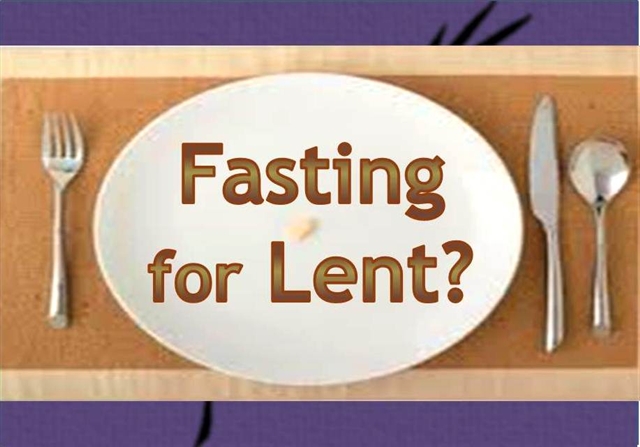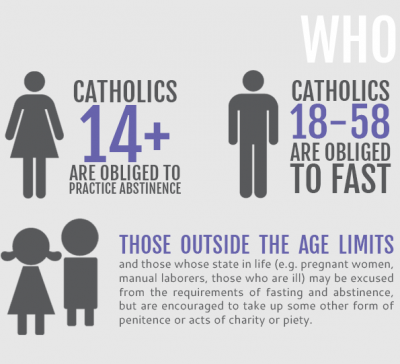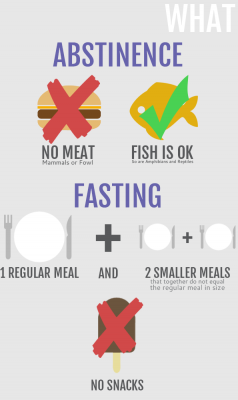
The Regulations on Lenten Fasting & Abstinence
The dual disciplines of fasting and abstinence have a long history in the Catholic Church. Going back to the early Church, the purpose behind the custom of self-denial is not punishment; it is to simplify our lifestyles so that we create a certain emptiness. In this way, freed from all distractions, we are able to hear and respond to God’s continued call to conversion and holiness.
Fasting is to be observed on Ash Wednesday and Good Friday by all Catholics from the age of 18 until age 59. On days of fasting, one full meal is allowed. Two smaller meals, sufficient to maintain strength, may be taken according to one’s needs, but together they should not equal another full meal. Eating between meals is not permitted, but liquids are allowed.
Abstinence from meat is to be observed by all Catholics who are 14 years of age and older. Ash Wednesday, all the Fridays of Lent, and Good Friday are days of abstinence.
Note: If a person is unable to observe the above regulations due to ill health or other serious reasons, they are urged to practice other forms of self-denial that are suitable to their condition. Fasting, almsgiving, and prayer are the three traditional disciplines of Lent. The faithful and catechumens should undertake these practices seriously in a spirit of penance and of preparation for baptism or of renewal of baptism at Easter.

